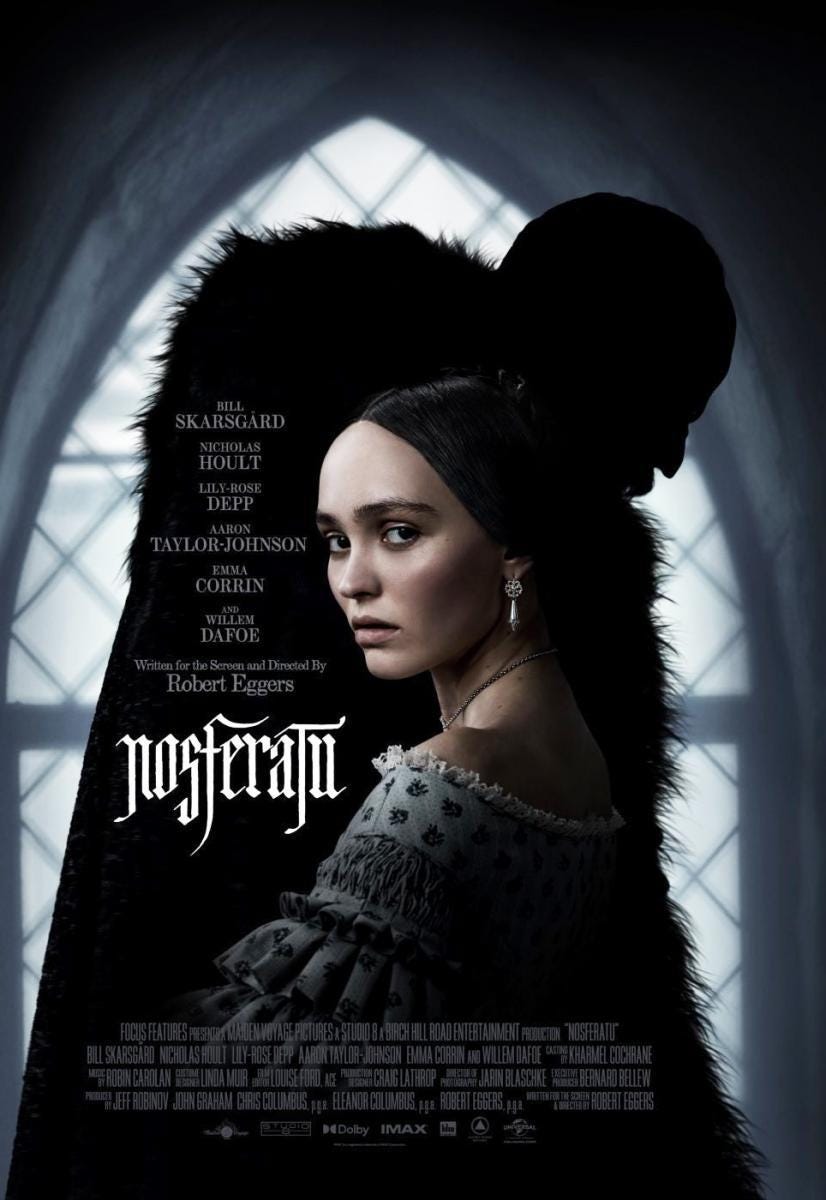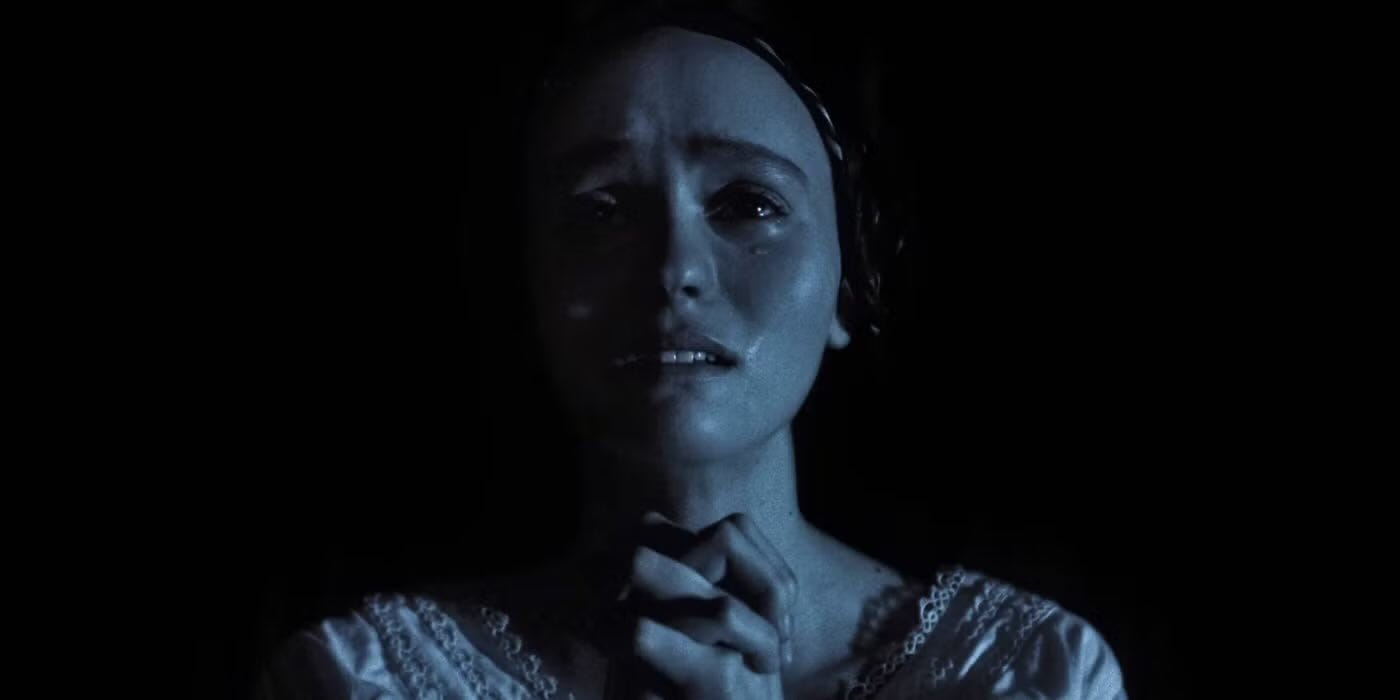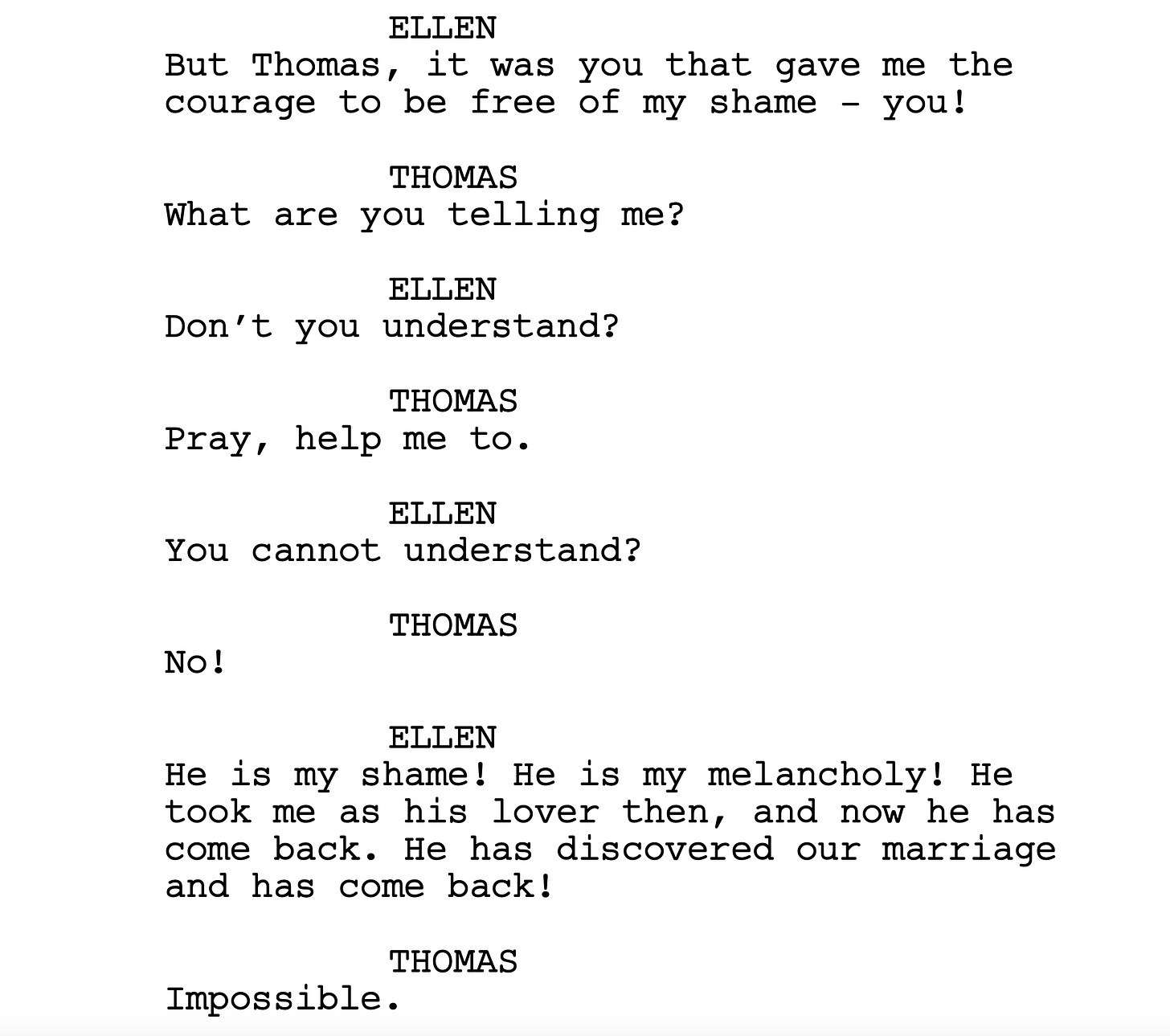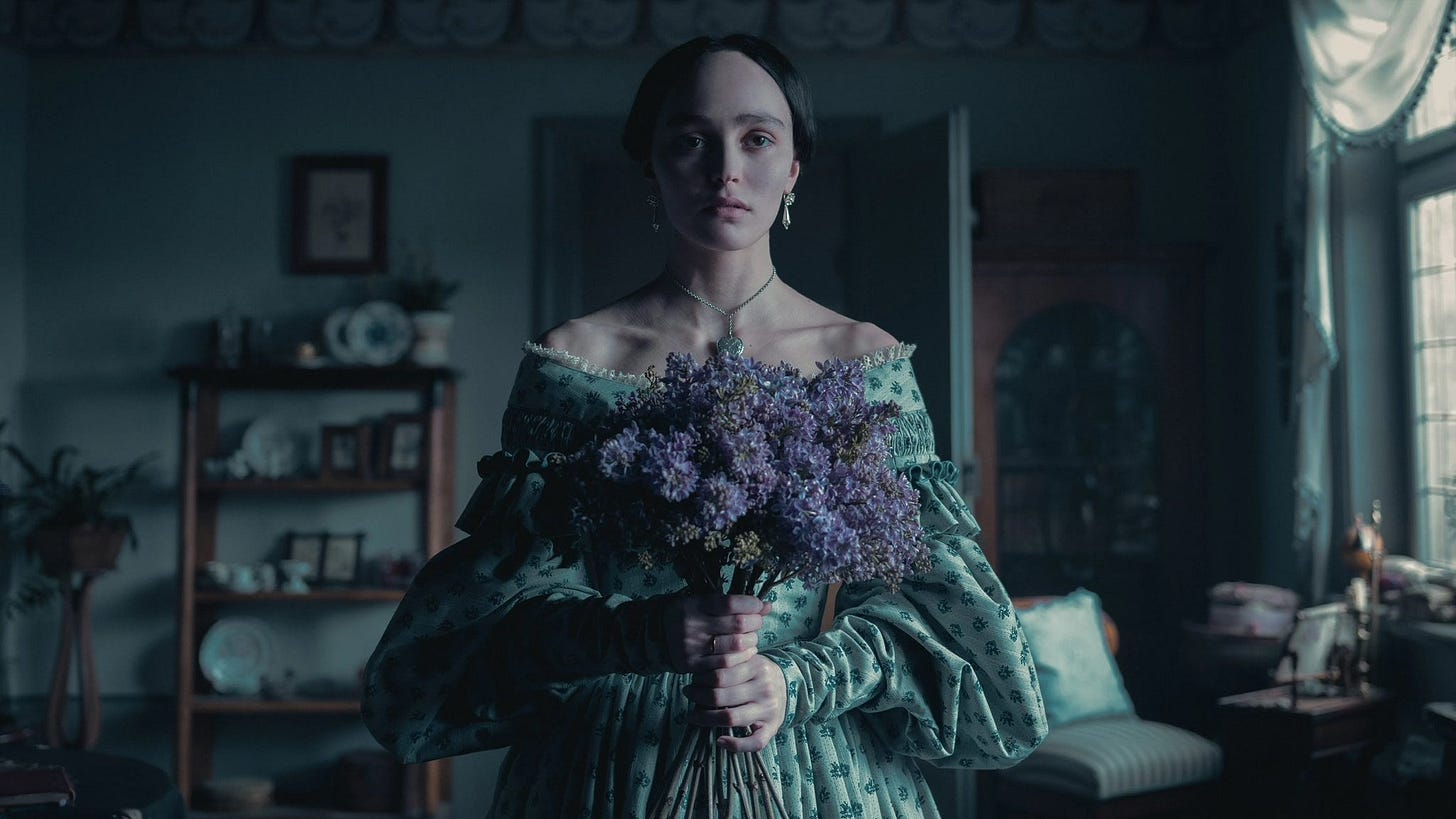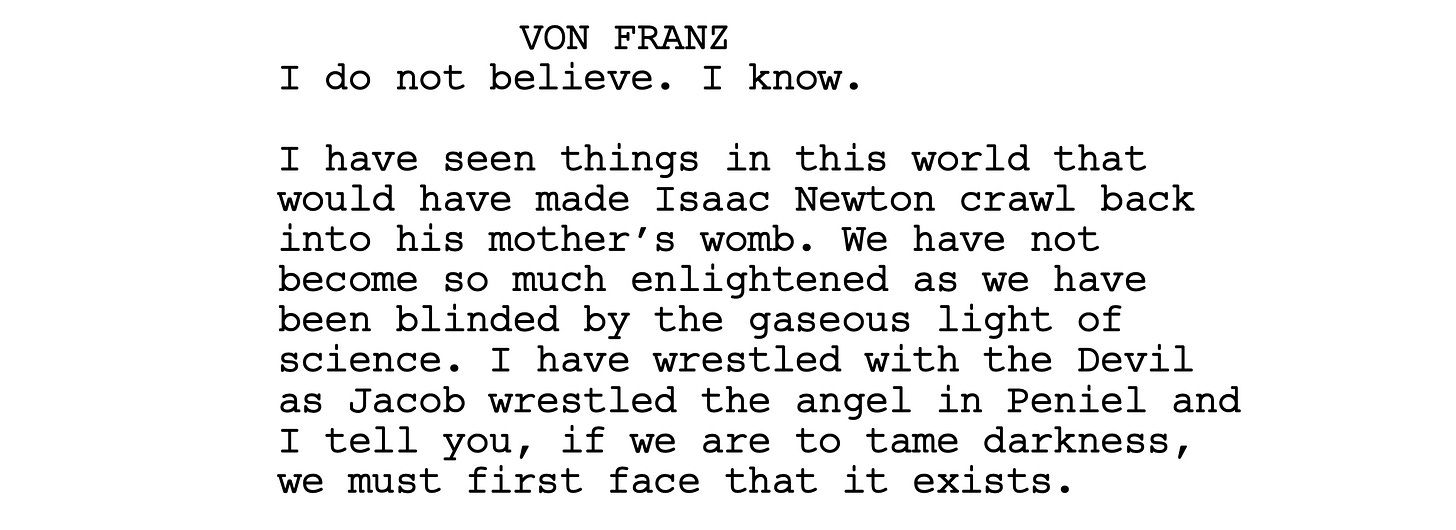Eggers' Nosferatu – A Study in Darkness
Tatiana gives her take on the latest vampire flick to hit the screens, a Jungian parable disguised as a gothic fairytale.
Quick Synopsis
In the 1830s, German estate agent Thomas Hutter travels to Transylvania to meet with Count Orlok, a prospective client. In his absence, Hutter's new bride, Ellen, is left under the care of their friends, Friedrich and Anna Harding. Plagued by horrific visions and an increasing sense of dread, Ellen soon encounters an evil force that's far beyond her control. It is a remake of Murnau’s 1922 Nosferatu, itself inspired by Bram Stoker’s 1897 novel Dracula.
Death Drive and Darkness
There have been many vampires in film and Bram Stoker’s novel is the inevitable source of inspiration for them all, starting with Murnau’s aesthetic feat of German Expressionism. As a great admirer of Robert Eggers’ filmography and a fangirl of anything gothic or vampire-related, I was afraid of being disappointed. I wondered what could possibly be done with Dracula that hadn’t been done before. Disappoint, it certainly did not. The result left me gobsmacked, I believe is the right word. In this very fresh take on Nosferatu, Eggers tells his story from the perspective of the vampire: Ellen. Yes, Ellen and the vampire are one and the same. Let me explain.
Coppola’s 1992 adaptation — and one of my favorite films — barely deals with Stoker’s themes of vampirism and contagion at all, but instead gives us an epically romantic Mircea Eliade-type surrealist story of reincarnation, with love surviving through the ages, which results in the vampire being brilliantly humanized. We find ourselves rooting for the monster to get the girl in the end. Eggers does the opposite: his vampire doesn’t exist, there is nothing human to it, it is “an appetite, nothing more,” a rotting, ugly thing, an insatiable Thanatos, a plague — it is the projection of Ellen’s own overwhelming darkness and death drive.
“Come to me. Come to me: a guardian angel, a spirit of comfort - spirit of any celestial sphere - anything - hear my call.” The film begins with a heartbreaking plea from a desperately lonely adolescent girl, a cry for help that is answered first by her own voice in her mind and then by darkness in the form of a hand violently clutching her throat. This opening scene sets the tone for the parable that unfolds: vampires aside, this is about how depression can enter your life and hold you in its grip, how you can be both repulsed and infatuated with it, how no amount of love or care can cure it, and how it ends up affecting/infecting all who are close to you. And the pain is real. The rest of the film is Ellen’s battle against the personification of her darkness, a vampire who is at the same time a very toxic imaginary friend — the “only one who can understand her” — and a mouthpiece for the obsessive self-harming thoughts and morbid ideations running through her brain — “you are not of human kind”, and variations on “this is all your fault”, “you are doomed”, “you’d be better off dead”.
Eggers jokes in an interview for Esquire UK that the story is “a love triangle between Ellen, her husband who loves her but can’t understand her, and — that guy.” Eggers, wisely, gives us very little backstory for Ellen apart from her being somewhat of an unusual and solitary child, losing her mother at a young age, and experiencing a very disturbing, potentially incestuous relationship with her father, who repeatedly threatened to “send her to that place” — we are to understand an asylum. She confesses to her friend Anna that she has never felt “truly present or alive.” It is only by finding true love with her new husband’s deep faith in her that she finally begins to feel “as normal” — briefly, until the darkness returns to claim her and the vampire hisses “Thought you I would not return? Thought you I would not?” Though her friends are well aware of what they embarrassedly call her “past melancholy”, they take her in and do all they can to protect her from herself — granted, tying her to the bed may not have been the best of solutions — yet nothing helps, and her possession grows to the point of bringing misfortune on them all, despite her will to fight back against her condition. Her loved ones watch her, aghast and powerless, as she contorts in frantic hysteric fits, screaming out for help, even attempting to bite off her own tongue in the hope of silencing her thoughts, and constantly oscillating between turning against them and begging them for forgiveness.
Jungian Shadows
Here is the striking difference: Bram Stoker’s vampire is a symbol for an array of Victorian social fears — rampant disease, immigration, the limitations of science, female sexuality, to name a few — whereas Eggers’ monster is a study in human darkness, the consequences of being taken over by it, and the quest for individuation as the only path towards liberation. His film is positively crawling with Jungian references and it’s not by chance if Eggers turns Van Helsing’s character into an alienated Swiss metaphysician, Albin Von Franz, named after Jungian psychoanalyst Marie-Louise Von Franz. The eccentric professor is the only one who listens to Ellen and takes her seriously. He will become her confidant and sole guide through her struggle.
I’m not a Jungian scholar by any stretch of the imagination, but even to me the references are more than mere subtle hints and I have no doubt that Eggers used the framework of Murnau’s film and Stoker’s obsession with disease to stretch the vampire myth further into the realms of psychoanalysis by very blatantly turning the archetype into a metaphor for what Jung called the “shadow”. It might as well be Jung speaking through Von Franz when he says “if we are to tame darkness, we must first face that it exists” — that was kind of his whole schtick, no? In order to individuate, one must descend into one’s own darkness, which comes with "the danger of falling victim to the shadow1”: assimilation of — rather than possession by — the shadow is at stake in this battle.
Von Franz reveals to Ellen what she already knows, that the vampire is “impervious to their iron stakes” and that only she has the “faculty to redeem them all” and lift the plague infecting her surroundings — and this must be done through a willing sacrifice, which she finally accepts. The end of the film is chilling. She gives in to her shadow and quite literally “merges” with it until both she and her vampire die, flooded by the light of dawn. The last scene is of a beaming Von Franz, mission accomplished, seen through his reflection in a mirror, gazing out of the window into the rising sun — into the face of God. Thus the story closes on Ellen’s “psychic death” which is the only hope she has of shifting back to the existential position of the natural self and resurrecting her own consciousness. And yes, this is a happy ending. I think. Or maybe it is a happy beginning.
On Love, briefly
And Ellen asks Von Franz “does evil come from within or from beyond?” Recently, I’ve had to ask myself that question too. Not about me, but about someone I’ve loved very dearly for a long time and had to let go of. Like Ellen’s husband Thomas, I too, doubting, had to go see for myself, so I too journeyed to the vampire’s castle, deep into that person’s psyche to try and solve that question — to try and understand. And help. Like Thomas, I ended up scathed by the darkness I encountered, gaining little understanding of it, and returning unable to help in any way. But doubting no more. I saw the print of the nails — and the bite marks. I met the vampires that had drained — and still drain — the life out of that person I loved. Like Thomas, I too was bitten, and though I bear the scars, I was not infected, and I am not sure what I have to thank for that — my upbringing, my own “soul”, the shield of benevolence my friends and family envelop me in, my faith, maybe all of these. This was the most harrowing and humbling experience of my life.
Perhaps the closest I’ve come to answering Ellen’s question is that evil is very real, and that it can possess you to the point of taking complete control of your life and leave total destruction in its wake. I dare to assert now that this someone I’ve loved has no evil “coming from within” but is undoubtably possessed with trauma the depths of which are so fathomless that its reality belongs to the realm of the unspeakable. I watched first hand, aghast and powerless myself, the actual physical contortions, the sobbing, the pulling of hair, the screaming for help, the turning against me, the begging for forgiveness, the despair, the self-harm, the longing for death. The intense and extreme anguish and feeling of isolation that no amount of my love and care could ever alleviate. And the pain was real. In this brush with a reality that was so completely foreign to me, I learned that in such cases the act of true love is to let go, for the only chance a person may have to defeat the darkness is to face it alone.
Many thanks to Aaron Bernstein and Jeremy Corren for engaging with me in precious, thought-provoking conversations.
Quoting Jung here.




